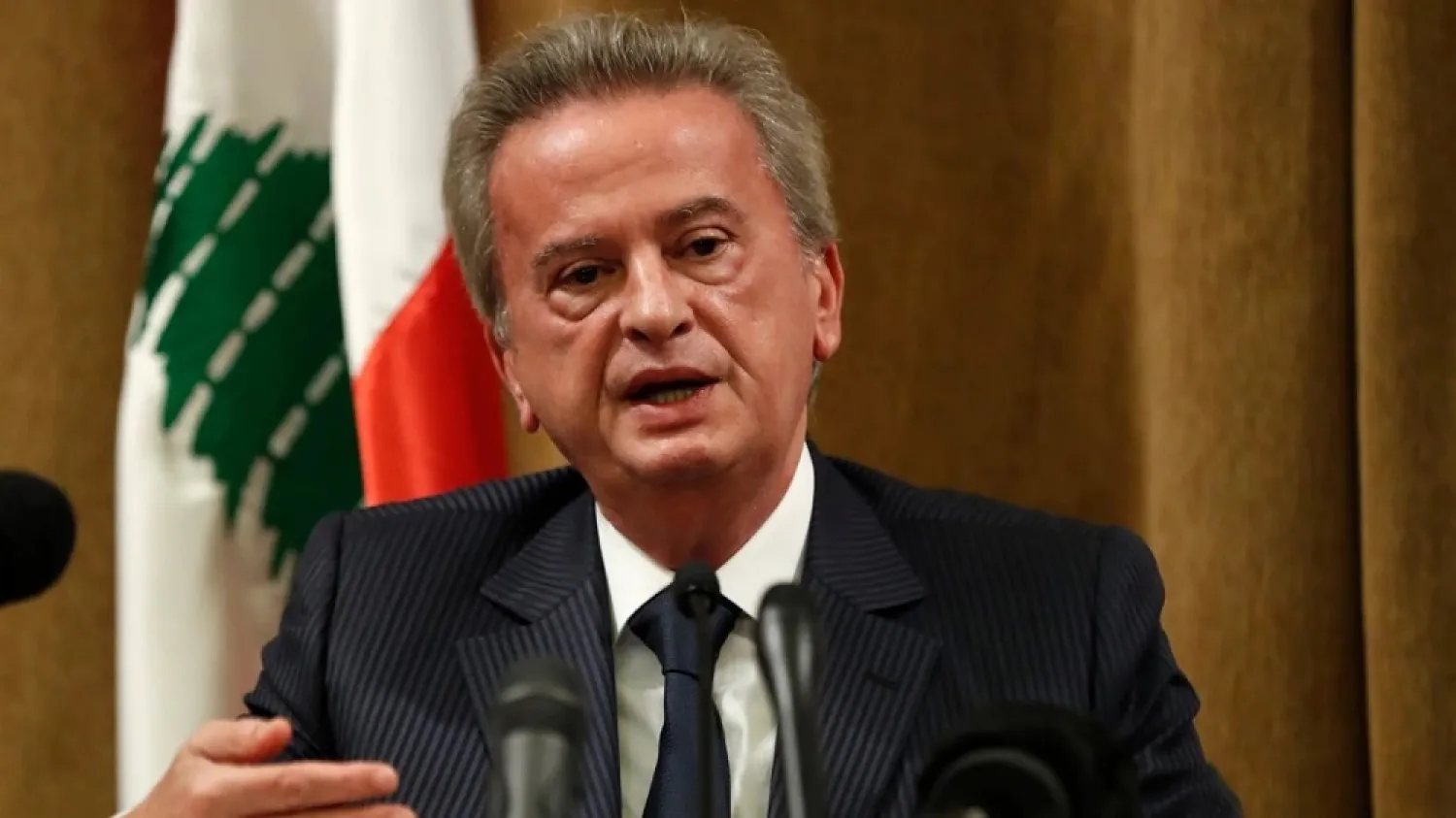The daily protests that surround Lebanon's Central Bank in the heart of the capital Beirut have not impacted the operations at the building. On its sixth floor, Governor Riad Salameh spends the majority of his day in meetings and keeping an eye on global markets and the fluctuation of the local currency against the dollar.
Sitting down for an interview with Asharq Al-Awsat, Salameh said his "conscience is clear" in spite of the criticism that has held him responsible for the collapse of Lebanon's economy.
The collapse started in March 2020 with the previous government's default on its Eurobond debt for the first time as it sought to restructure agreements due to its spiraling financial crisis that hit foreign currency reserves. Salameh has tirelessly been issuing circulars aimed at "easing the severity of the crisis and averting the major collapse."
The latest such circular, number 161, allows owners of deposits in Lebanese pounds to withdraw them and their salaries in US dollars according to the Central Bank's rate on the Sayrafa platform. This led to a major improvement in the exchange rate from 33,000 LL to the dollar on the black market to 19,000.
Salameh explained that the purpose was to reign in the black market. He stressed that the Central Bank's intervention helped restore 35% of the value of the pound.
He wondered at the criticism that was still being thrown his way in spite of the improvement in the exchange rate. The new rate should help improve the people's purchasing power, he remarked.
But the ongoing criticism leveled against him is politically motivated and is rooted in interests in the black market, he charged. "Some sides were particularly bothered that the recent measure has eliminated the black market and allowed Sayrafa to be the main platform whereby everyone would have to abide by the rate it sets."
"This all favors the country," stressed Salameh.
Asked whether the measure will help maintain the pound at 20,000 to the dollar, he replied: "The market will do the talking. We will not intervene to introduce a fixed exchange rate. We will let developments take their course in the market."
"We will be around to prevent the reoccurrence of severe fluctuations," he added. "The Sayrafa platform now has the monetary ability to intervene in dollars" to thwart any major drop in the pound.
IMF negotiations
Salameh said Lebanon was holding almost daily meetings with the International Monetary Fund (IMF). He described the virtual talks as "serious", revealing that the IMF was still gathering information about the situation.
A government committee has been formed to begin preparing the program for Lebanon.
Salameh did not disclose when he believed an understanding would be reached with the IMF, while also denying that it was tied to the upcoming parliamentary elections set for May.
The IMF is solely concerned with the presence of an effective government that it can negotiate with, he went on to say.
He revealed that should a program be reached and should Lebanon commit to it, then other countries may join the bailout "and we may secure 12 - 15 billion dollars, which is enough for Lebanon to recover."
On how long Lebanon will need to overcome its crisis, Salameh said: "The sooner reforms are implemented, the sooner the crisis will end."
"Trust is the key factor that will restore funds and lead to the economic recovery," he stressed to Asharq Al-Awsat.
He denied claims that the easing of the currency fluctuation is tied to the elections, whereby the authorities are using the stabilization to give the impression that they are in control of the situation so people would reelect them.
"The government's main concern at the moment is combating inflation that is impoverishing the people," he stated. "It is not thinking about the elections and political gains. It is focusing in approving a state budget that would attract confidence and, most importantly, lead to negotiations with the IMF."
Furthermore, Salameh rejected accusations that the Central Bank had spent the savings of depositors.
"We do not own the savings in the first place," he stated. "The major loss in the banking sector is blamed on the halt in payments. The banks had a huge eurobond wallet that they lost. These were depositor funds that they directly employed in service of the state."
"The majority of the funds loaned by the Central Bank to the state were in Lebanese pounds," he clarified.
Asked if the state could resort to gold reserves to end the crisis, Salameh stressed that a law is in place that bars such a move. "We are committed to this law," he said. "Even if a serious reform program is not approved, the gold reserves must not be touched at any cost."
Clear conscience
Amid the unprecedented crisis, Salameh declared: "No one envies my position, but I am here and my conscience is clear."
He said political interests have led to the campaign that has firmly held him responsible for the crisis.
He noted that all other factors have been taken out of the equation and only the Central Bank has been blamed. "This does not make sense," he said. "They want to turn me into a scapegoat."
In the past two years, the Central Bank was the only institution that was financing the public and private sectors, he added. "We confronted all fears, especially those that spoke of impending famine."
"We managed to ease the crisis through dollars that we had collected in advance," he explained, noting that, significantly, no foreign assistance has poured in to help Lebanon.
"On the contrary, Lebanon's image was being destroyed in order to push it towards the great collapse," remarked Salameh. "Perhaps some hold it against us for stopping this collapse."














